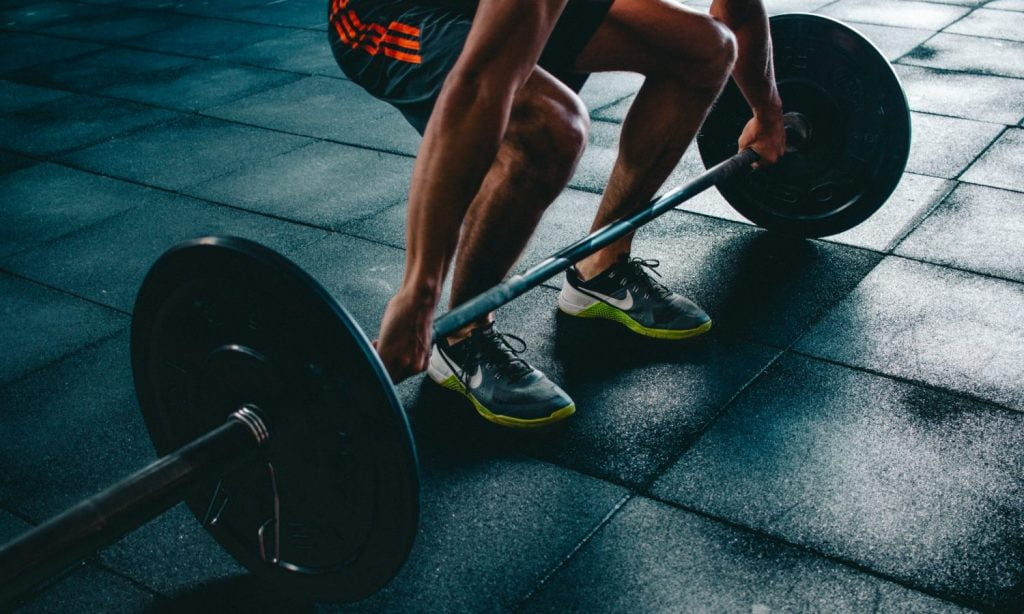While there’s still a lot to learn about how cannabis works, it may help in improving your workout performance, and may have the potential to help you achieve your fitness goals.
With some states legalizing the use of cannabis, the social stigma on the subject may start to loosen up. Today, cannabis seems to have become more popular and accessible to people. In fact, there are fitness gurus and athletes who even start to speak of its positives. In facts, there are benefits of incorporating cannabis into your fitness routine.
Nowadays, some fitness enthusiasts incorporate cannabis before or after their workout routine and believe working out while high is beneficial. Aside from that, cannabis is believed to improve overall fitness, too.
To put your mind at ease, here are some claimed health benefits of cannabis, as well as how it’s supposed to level up your fitness game.

Minimizing Inflammation And Pain
One of the most promising areas of cannabis research is its capacity to reduce joint and muscle inflammation. Studies have tried to prove that the nonpsychoactive cannabinoid in cannabis, cannabidiol (CBD), could help in reducing inflammation.
Related to its anti-inflammatory properties, cannabis is also known to relieve body pains and soreness derived from working out too much. CBD may reduce pain by influencing endocannabinoid receptor activity, interacting with neurotransmitters in the nervous system, and reducing inflammation. It’s said to be effective in lessening acute pain, pain caused by twisted muscles, and chronic pain.
RELATED: Is Marijuana The Next Recovery Revolution For Pro Athletes?
This could be beneficial for athletes and fitness enthusiasts dealing with inflammation and pain in the muscles and connective tissue. It could also be helpful for those recovering from surgery or past injury.
This is perhaps the primary area of cannabis research that seems to have shown positive results. It may be good news for fitness enthusiasts looking for alternatives to opiates.
Improving Sleep
Sleep is critical to overall fitness as it gives the body enough time to recover and repair damaged muscles after exercise. This is because it’s also the only time when the body produces growth hormones, which are necessary for recovery.
Unfortunately, many people are sleep-deprived. That is, they don’t get the recommended seven to eight hours of sleep every night. When this happens, it could mean sabotaging their own fitness goals.
However, cannabis may be able to help in this area as it’s believed to aid in inducing sleep. It’s said to help restore the natural sleep cycle, which usually falls out of sync because of the daily schedules and stressors of modern life. Because of its claimed antianxiety properties, cannabis could also help soothe a stressed mind and body. And if you find it hard to get a good shut-eye at night due to chronic pain, cannabis may help in its relief.
RELATED: New Study Confirms Cannabis Users Are Not Lazy Stoners After All
Cannabis is also believed to help people suffering from sleep apnea. It’s said to suppress dreams by reducing the amount of rapid eye movement (REM) sleep you get. This could be beneficial for those with posttraumatic stress disorders since it could mean fewer nightmares.

Boosting Energy And Mental Acuity
Numerous factors could affect your energy levels and concentration, including chronic pain conditions, too much stress, lack of sleep, and even diet. And lack of energy and focus could prevent you from attaining your fitness goals. For instance, you may find it hard to finish a half-hour workout routine if you feel tired and lethargic.
Fortunately, cannabis could help with this, and it’s easy to find the best strains for energy and mental boost. Cannabis is said to directly improve energy and promote wakefulness in people. It’s believed to activate the neurons in specific areas of the brain responsible for activity and alertness.
RELATED: Study Shows How Marijuana Can Motivate You To Exercise
Besides that, cannabis is also claimed to indirectly boost energy by improving other issues. For one, it could help in getting enough sleep. Also, it’s said to be great at reducing stress and anxiety symptoms, plus it could reduce pain, which may cause you to experience fatigue and lethargy.
The popular belief is cannabis hampers brain functioning. However, this may not always be so. As some studies have shown, low doses of tetrahydrocannabinol (THC), the psychoactive component in cannabis, could restore cognitive functioning in mice.
By helping improve mental acuity, cannabis could help fitness enthusiasts get in the ‘zone’ with their fitness routines. It could help their mental game while boosting focus by reducing anxiety and keeping them calm and relaxed.
Assisting In Weight Loss
Another area in which cannabis is said to improve overall fitness is assisting in weight loss. There are claims that cannabis could help in losing weight. For one, it’s believed to help in reducing appetite.
The general belief is cannabis stimulates appetite since marijuana users are said to feel hungry after smoking. However, this may only be half true. While THC in cannabis could cause hunger, CBD is said to do the opposite. In fact, a study revealed that CBD is a CB1 receptor antagonist, which means it could deactivate or block off the receptor. This could help in reducing appetite and controlling hunger pangs.

Moreover, cannabis is said to turn bad (white) fat into good (brown) fat. While white fat is responsible for increased risks of chronic conditions like diabetes, brown fat, a metabolically active form of fat, could burn off energy and generate heat. This means it could burn calories.
CBD may play several roles in how the body interacts with these fats. Not only could CBD help in the conversion of harmful white fat cells into brown fat cells, but it could also stimulate the body to efficiently break down these fats. For this reason, CBD may be a promising therapy for obesity prevention, though this claim still needs more clinical and human studies.
RELATED: Smoking Marijuana Before Exercises Can Increase Workout Productivity
Lastly, cannabis is believed to reduce the risk of metabolic disorders causing weight gain. The overactivation of CB1 receptors may be partly responsible for increasing fat tissue throughout the body and contributing to obesity and other metabolic risks. As mentioned, cannabis is supposed to deactivate these receptors, which could help in reducing the risks of obesity, diabetes, and high cholesterol levels.
Conclusion
While there’s still a lot to learn about how cannabis works, it may help in improving your workout performance, and may have the potential to help you achieve your fitness goals.
This article originally appeared on Cannabis.net and has been reposted with permisison.


